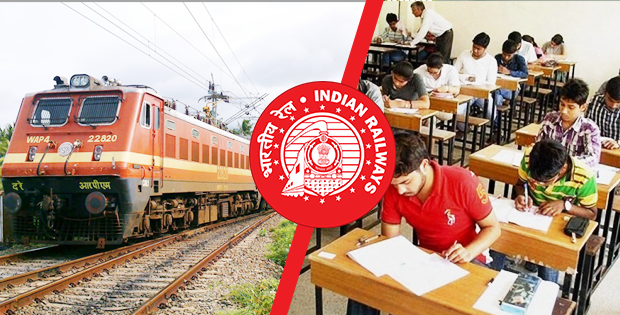
INTRODUCTION:
The Railway Recruitment Board (RRB) Non-Technical Popular Categories (NTPC) examination is a critical gateway for candidates aspiring to secure a position in the Indian Railways’ non-technical sectors. This comprehensive exam evaluates a candidate’s proficiency across various subjects, divided into Mathematics, General Intelligence and Reasoning, General Awareness, and General Science. Mastering these subjects is paramount, as they test the aptitude, reasoning ability, and general knowledge of the aspirants, ensuring that only the most competent candidates are selected for the diverse roles within the railway sector.
SYLLABUS
Mathematics
- Number System: Understanding numbers, their types (whole numbers, integers, rational and irrational numbers), and operations on them.
- Decimals: Working with numbers expressed in decimal form, including operations like addition, subtraction, multiplication, and division.
- Fractions: Understanding parts of a whole, represented as fractions, and operations involving fractions.
- Ratio and Proportion: Understanding the relationship between quantities and solving problems involving the comparison of these quantities.
- Percentage: Calculating percentages, percentage increase/decrease, and its applications in various problems.
- Profit and Loss: Understanding concepts related to profit, loss, discount, markup, and solving related problems.
- Simple and Compound Interest: Calculating interest earned or paid over time, under simple interest (interest calculated only on the principal amount) or compound interest (interest calculated on the principal amount and also on the interest accumulated over past periods).
- Time and Distance: Solving problems related to speed, distance, and time, including concepts of average speed and relative speed.
- Time and Work: Understanding work done, the rate of work, and solving problems involving the time taken by individuals or groups to complete tasks.
- Average: Calculating the average (mean) of a set of numbers and its application in various problems.
- Algebra: Working with expressions, equations, and functions, including solving equations and understanding the concept of variables.
- Geometry: Understanding shapes, sizes, properties of different geometric figures, and solving problems related to them.
- Trigonometry: Understanding the relationships between the sides and angles of triangles, and solving problems involving trigonometric ratios.
- Mensuration: Calculating area, volume, and surface area of various geometric shapes and solids.
- General Intelligence and Reasoning
- Analogies: Identifying relationships between pairs of words, numbers, or other items.
- Classification: Grouping items based on common qualities or characteristics.
- Coding and Decoding: Translating coded messages into their original form and vice versa.
- Series and Sequences: Understanding patterns in sequences of numbers, letters, or symbols.
- Blood Relations: Solving problems based on family relationships.
- Direction Sense: Answering questions related to directions and distances between points.
- Logical Reasoning: Evaluating arguments, identifying valid inferences, and reasoning logically through problems.
- Statement and Conclusion: Assessing statements and deducing conclusions based on them.
- Visual Reasoning: Interpreting and solving problems based on visual information, like patterns and sequences in images.
General Awareness
- Current Affairs: Awareness of recent events and developments in India and around the world.
- Indian History: Knowledge of major events, movements, and important figures in Indian history.
- Indian Geography: Understanding the physical and political geography of India.
- Indian Polity: Knowledge of the Constitution of India, political system, governance, and public policy.
- Economics: Basic concepts of economics, Indian economy, and economic policies.
- General Science: Basic concepts and discoveries in Physics, Chemistry, and Biology relevant to daily life and technological advancements.
- Static GK: General knowledge about India and the world that does not change over time, such as capitals, currencies, festivals, and important days.
General Science
- Physics: Fundamental concepts, laws, and applications of physics in daily life.
- Chemistry: Basic concepts of chemical reactions, properties of matter, and its applications.
- Biology: Understanding living organisms, their functions, and how they interact with the environment.
Exam Pattern
The RRB NTPC examination follows a three-stage selection process:
Stage 1: Computer-Based Test (CBT) – Preliminary
The preliminary exam is an online computer-based test consisting of multiple-choice questions. The exam is divided into three sections:
- Mathematics
- General Intelligence and Reasoning
- General Awareness
- Each section carries equal weightage, and the total duration of the exam is 90 minutes. There is a negative marking of 1/3rd for each wrong answer.
Stage 2: Computer-Based Test (CBT) – Mains
The mains exam is also an online computer-based test. The exam pattern is similar to the preliminary exam, but the difficulty level is higher. The sections included in the mains exam are:
- General Awareness
- Mathematics
- General Intelligence and Reasoning
- General Science
CONCLUSION:
Preparation for the RRB NTPC examination demands a well-structured strategy and an in-depth understanding of its vast syllabus, encompassing Mathematics, General Intelligence and Reasoning, General Awareness, and General Science. Success in this competitive exam opens doors to numerous prestigious positions in the railways, making it a coveted goal for many. Aspirants are encouraged to thoroughly grasp each topic outlined in the syllabus, practice diligently, and stay updated on current affairs to enhance their chances of achieving a successful outcome in the examination.
For More Information about Other Examination- CLICK HERE
To Know About Detailed Information about Railway Exam- CLICK HERE